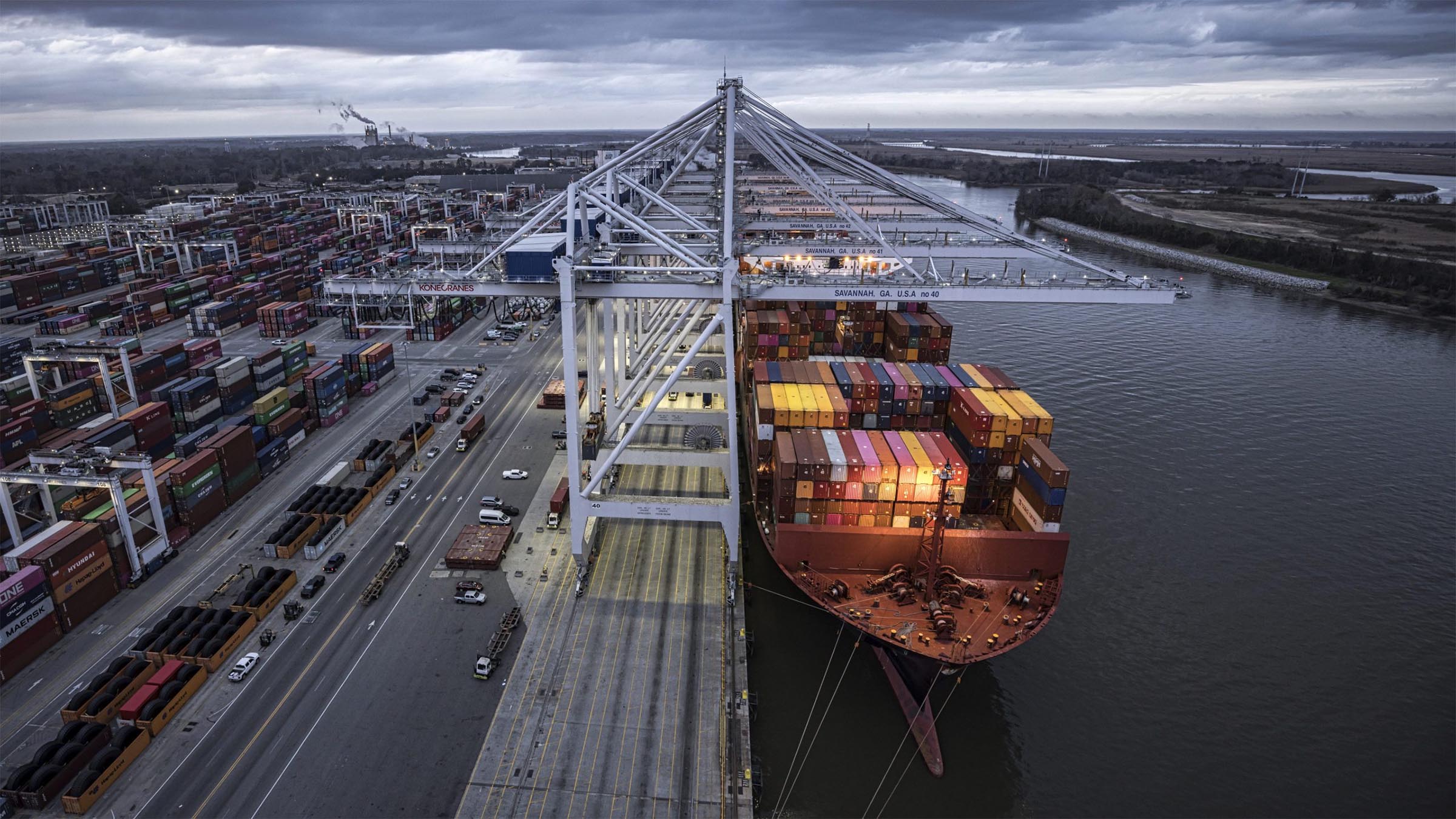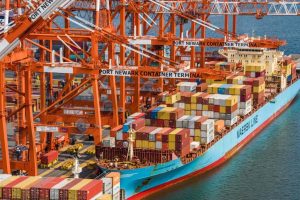A strike by longshoreman called in dispute over wages and use of automation threatens to choke off shipments to ports on the East and Gulf coasts, threatening to delay deliveries of everything from groceries to autos and auto parts.
More than 45,000 dock workers at three dozen ports along the East and Gulf coasts walked off the job early Tuesday, launching a strike that potentially could disrupt the supply of automotive components to assembly plants in the Southeastern United States.
The strike is shutting down ports from Boston all the way to Houston and also should impact both the import and export of finished vehicles.
How long the walkout might continue is uncertain but sources close to the negotiations indicate there’s a big gap between what workers demand and what port operators are offering.
Walkout demonstrates rising militancy
The walkout is indicative of the rising tide of militancy among American workers. Detroit’s three automakers were hit by a lengthy walkout last fall, and more than 35,000 hourly employees at Boeing in Seattle took to the picket lines last month. Key to these and other recent labor disputes: wages and the deployment of technology that threaten to impact job security.

Union workers have been growing more militant. Detroit’s Big Three faced lengthy walkouts last autumn.
European automakers, who funnel finished vehicles and components through key East Coast and Gulf ports, such as New York Harbor, Baltimore, Savannah, and Jacksonville, could be particularly vulnerable if the strike last more than a month, observers said. Parts needed for U.S. assembly plants also could be depleted quickly if the strike continues for any length of time.
Companies such as BMW, Stellantis and Ford, which export vehicles to Europe could be particularly vulnerable to the walkout.
European manufacturers face challenges
European companies such as BMW, Mercedes-Benz, Volkswagen, and Volvo all operate assembly plants in the Southeast, but they utilize major components such as engines, transmissions and EV power trains made in Europe.
Negotiations officially began last May. The consensus among experts is the dispute has been building for months, and the two sides are nowhere close to a deal.
The hard to miss indications a strike was likely gave shippers such as the European automakers an opportunity to build stockpiles of key components, which can be drawn down in the event of walkout, experts noted.
Since the pandemic in 2020, automakers have acknowledged building stockpiles of key components to avoid disruption as they have modified the just-in-time philosophies that began to take hold in the late 1990s as globalization expanded.
More Auto News
- UAW Threatens New Stellantis Strike
- Hurricane Helene Could Trigger New Semiconductor Shortage
- Tesla Leads Industry in Recalls
Wages and automation at the heart of dispute

BMW’s Spartanburg plant could be hard hit as it depends on European components while exporting a large share of its vehicle production.
The International Longshoremen’s Association or ILA, in a statement posted after the strike began, accused the port operators, represented by USMX, of “blocking the path” to a deal on a new contract, saying, in part, the ocean carriers represented by USMX want to enjoy profits while they offer the ILA longshore workers an unacceptable wage package.
The ILA says workers want higher wages to compensate them for their contributions to “enriching their employers and the industry” — and to compensate for inflation that “eats away” at their current salary levels.
According to some reports. The ILA members are asking for a 77% raise spread over six years, while the port operators are offering 50% spread over the same period.
“Ready to roar”
“A sleeping giant is ready to roar on Tuesday, October 1, if a new Master Contract Agreement is not in place,” Harold Daggett, president of the ILA, said in the hours leading up to the walkout. “My members have been preparing for over a year for that possibility of a strike.”
Dockworkers, who operate massive cranes requiring a knowledgeable touch to move shipping containers from ships to truck or rail cars, can make $200,000 annually with overtime. That suggests to some analysts that wages could be a secondary consideration for the ILA.
The union also is concerned about the spread of automation, which could push some of the work around the dock beyond the union’s jurisdiction.
Workers are also pushing for protection against the use of new technology devices in terminals.,
Politics play a role
Meanwhile, the Biden administration has elected to stay out of the dispute and has declined to invoke the Taft Hartley Act to end the walkout with a “cooling off” period.
The Biden administration was heavily criticized by allies in organized labor when it used its power under the Railway Act of 1926 to end a strike by a dozen unions in December 2022. At the time, the administration was concerned with the impact a rail strike might have on inflation, which was peaking at the time.
The intervention by the President in 2022 was cited by the Teamsters Union as a key reason for not endorsing any candidate in the 2024 Presidential Election.
While President Biden has made it clear he has no plans in intervene in the port strike along the East and Gulf coasts, the Teamsters also issued another statement, saying the administration should not intervene in the walkout.



Looking forward to UAW furloughs due to the longshoremen strike. I’m sure the UAW workers will gladly lose their paychecks to support their union brothers.